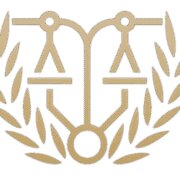Best Appeal Lawyers in Illinois
Share your needs with us, get contacted by law firms.
Free. Takes 2 min.
Or refine your search by selecting a city:
List of the best lawyers in Illinois, United States

About Appeal Law in Illinois, United States
An appeal is a legal process in which a party asks a higher court to review a decision made by a lower court. In Illinois, appeals can arise from criminal, civil, family, and administrative cases. The goal of an appeal is to determine if errors occurred in the legal proceedings that significantly affected the outcome. Appellate courts do not retry cases or consider new evidence. Instead, they review the record from the initial trial to ensure that the law was applied correctly and that the proceedings were fair. Understanding the appeal process in Illinois is essential for individuals who believe a legal error affected their case’s result.
Why You May Need a Lawyer
Appeals are highly technical and governed by strict procedural rules. Many people seek legal assistance in the appeal process for several reasons:
- Their trial resulted in an unfavorable outcome that they believe was based on legal mistakes.
- They believe the trial court misapplied the law or failed to consider critical evidence.
- The deadline to file an appeal is approaching, and they need help preparing the necessary documents.
- Opposing parties are appealing, and they need to defend a favorable ruling.
- Appeal procedures and written briefs require specialized skills and knowledge.
A lawyer experienced in appellate law can analyze the record, identify errors, handle documentation, and present effective arguments before the appellate court.
Local Laws Overview
In Illinois, appeals are governed by the Illinois Supreme Court Rules and state statutes. Parties typically appeal to the Illinois Appellate Court, with further appeals going to the Illinois Supreme Court in select cases. There are important aspects to keep in mind:
- Time limits: Most appeals must be filed within 30 days after the final judgment or order. Missing this deadline can result in losing the right to appeal.
- Grounds for appeal: You cannot appeal simply because you disagree with the decision. There must be a legal claim that errors were made during the trial or legal proceedings.
- Record on appeal: The appellate court will review transcripts, evidence, and motions from the original case. No new evidence can be introduced at this stage.
- Types of appeals: Illinois recognizes both civil and criminal appeals, as well as appeals from administrative agencies and certain interlocutory, or non-final, orders under special circumstances.
Understanding these laws helps protect your rights and ensures you follow the correct steps for a successful appeal.
Frequently Asked Questions
What is an appeal?
An appeal is a request for a higher court to review the decision of a lower court to determine if any legal mistakes affected the outcome.
How long do I have to file an appeal in Illinois?
Generally, you must file a notice of appeal within 30 days of the court's final judgment or order.
Can I present new evidence during an appeal?
No, appeals are based only on the evidence and proceedings from the original trial. New evidence cannot be introduced.
What are common reasons for appeals being granted?
Common reasons include errors in interpreting the law, improper procedure, exclusion of key evidence, or judicial misconduct during the trial.
Can I appeal any court decision?
Not every decision can be appealed. Generally, only final judgments are appealable, but there are exceptions for certain orders.
What is the Illinois Appellate Court?
The Illinois Appellate Court is the state court that reviews decisions from trial courts, handling civil, criminal, and administrative appeals.
How long does the appeal process take?
It varies by case, but appeals can take several months to over a year before a decision is reached.
What happens after the appellate court makes a decision?
The appellate court can affirm, reverse, remix, or modify the lower court's decision. In some cases, further appeal to the Illinois Supreme Court may be possible.
Do I need a lawyer to file an appeal?
While you are not required to have a lawyer, the appeals process is complex, and representation by an experienced appellate attorney is highly recommended.
What happens if I miss the appeal deadline?
If you miss the deadline to file a notice of appeal, you may lose your right to have the decision reviewed. In rare circumstances, the court might allow a late appeal, but only with good cause shown.
Additional Resources
If you need further information or assistance with the appeals process in Illinois, the following resources may be helpful:
- Illinois Courts - Provides official information on court procedures and appellate rules
- Illinois State Bar Association - Offers resources and lawyer referral services
- Illinois Legal Aid Online - Free information and forms for those representing themselves
- Clerk of the Illinois Appellate Court - Assists with filings and procedural questions
- Local county law libraries - Access to legal resources and research assistance
Next Steps
If you are considering appealing a court decision in Illinois, start by reviewing the final judgment and noting the deadline for filing an appeal. Gather all relevant court documents, including transcripts and orders. Consult with an attorney experienced in appellate law to evaluate your case and ensure timely and proper filing. If you cannot afford an attorney, explore local legal aid organizations or the Illinois Legal Aid Online portal for self-help information. Prompt action is crucial to protect your rights throughout the appeals process.
Lawzana helps you find the best lawyers and law firms in Illinois through a curated and pre-screened list of qualified legal professionals. Our platform offers rankings and detailed profiles of attorneys and law firms, allowing you to compare based on practice areas, including Appeal, experience, and client feedback.
Each profile includes a description of the firm's areas of practice, client reviews, team members and partners, year of establishment, spoken languages, office locations, contact information, social media presence, and any published articles or resources. Most firms on our platform speak English and are experienced in both local and international legal matters.
Get a quote from top-rated law firms in Illinois, United States — quickly, securely, and without unnecessary hassle.
Disclaimer:
The information provided on this page is for general informational purposes only and does not constitute legal advice. While we strive to ensure the accuracy and relevance of the content, legal information may change over time, and interpretations of the law can vary. You should always consult with a qualified legal professional for advice specific to your situation.
We disclaim all liability for actions taken or not taken based on the content of this page. If you believe any information is incorrect or outdated, please contact us, and we will review and update it where appropriate.
Browse appeal law firms by city in Illinois
Refine your search by selecting a city.















